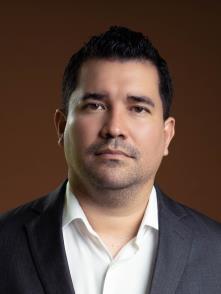
2 minute read
2023 ACCE Awards (continued)
Technology Executive Director for Kaiser Permanente and as Northern California Biomedical Engineering Manager for Hospital Corporation of America. He was instrumental in developing and advancing Kaiser’s Clinical Technology program. As the national leader for Kaiser Permanente's Clinical Technology, Mario led a highly matrixed organization of over 300 employees and 400,000 medical devices. across 8 regions and Washington, D.C. Mario ushered in many new technologies, devices and methodologies through difficult times and challenging economic conditions. He helped establish the National Product Council in Kaiser and created different technology committees which fostered partnership and communication between clinicians and engineers. His efforts to lead locally and partner globally helped put both Clinical Technology and Kaiser Permanente on the map. As a result of his work with Kaiser, he also advanced the clinical engineering profession in the US and throughout the world. Throughout his clinical engineering career, which spanned over 50 years, Mario kept contributing to the clinical engineering profession by sharing information, leading by example, and serving with American College of Clinical Engineering and other professional organizations. He dedicated a lot of time to advancing clinical engineering worldwide, and he did this by participating in many Advanced Clinical Engineering Workshops, sharing his knowledge, and helping where and how he could.
He leveraged a lifetime of experience in the health industry in 2010, serving a two-year term as President of The American College of Clinical Engineering (ACCE). Mario’s tenure as ACCE President helped entrench a tradition of bringing AAMI and ACCE members together to share education and valuable industry knowledge. In addition, he strengthened the collaboration with national associations, such as HIMSS & AAMI & IHE, AIMBE, as well as internationally with IFMBE, CORAL, and many more.
2023 Antonio Hernandez International Clinical Engineering Award
Dr. Ernesto Antonio Ibarra Ramírez
The award recipient this year is Dr. Ernesto Antonio Ibarra Ramírez, for his extraordinary leadership in pro- moting Clinical Engineering in Panamá and the Caribbean Region, and advancing healthcare safety in the Latin America Region through his collaboration work.

Dr. Ramírez served as the inaugural President of the IEEE ULATINA Student Branch in 2006, where he spearheaded the coordination of the first national and international academic and professional activities of biomedical engineering in Panama. Since then, his active participation and significant contributions to the fields of academia, research, and professional practice in biomedical engineering have motivated hundreds of individuals and greatly advanced the development of biomedical engineering in Panama and the Latin America Region.
Among his notable achievements, Dr. Ramírez has contributed to the preparation of Resolution No. 788 of the Engineering and Architecture Technical Board, which establishes the functions of the Biomedical Engineer in Panama (2008). In 2009, he founded the IEEE Engineering in Medicine & Biology (EMB) Chapter of Panama and held the position of President for two terms (20092010; 2017-2018). Additionally, he formed the Scientific Committee of the IEEE EMB of Panama, which comprises IEEE senior members with a PhD degree. This committee has provided national and international support for the review of scientific articles on biomedical engineering.
Dr. Ramírez has made significant contributions as a project manager in the field of biomedical science and technology in Panama, particularly in the development of telemedicine systems from 2014 to 2022. He has also held various academic positions in the discipline of biomedical engineering, including that of professor, researcher, and academic coordinator, and has been instrumental in the training of professionals in Panama. Furthermore, he has represented the IEEE EMB Chapter in numerous conferences and workshops across several countries, including Panama, Colombia, El Salvador, Ecuador, Peru, Costa Rica, and Mexico.
Since 2010, Dr. Ibarra has been actively engaged in biomedical engineering research, with a focus on Wireless Body Area Networks, Human Energy Harvesting, and Radiation and Human Health. Notably, in 2020, he played a crucial role in providing protection to healthcare professionals against COVID-19, through the design and construction of acrylic protective barriers, face shields, acrylic boxes for intubation of COVID-19 patients, and contributed to the design and development of biomedical equipment. These contributions were particularly vital in the early stages of the pandemic.







